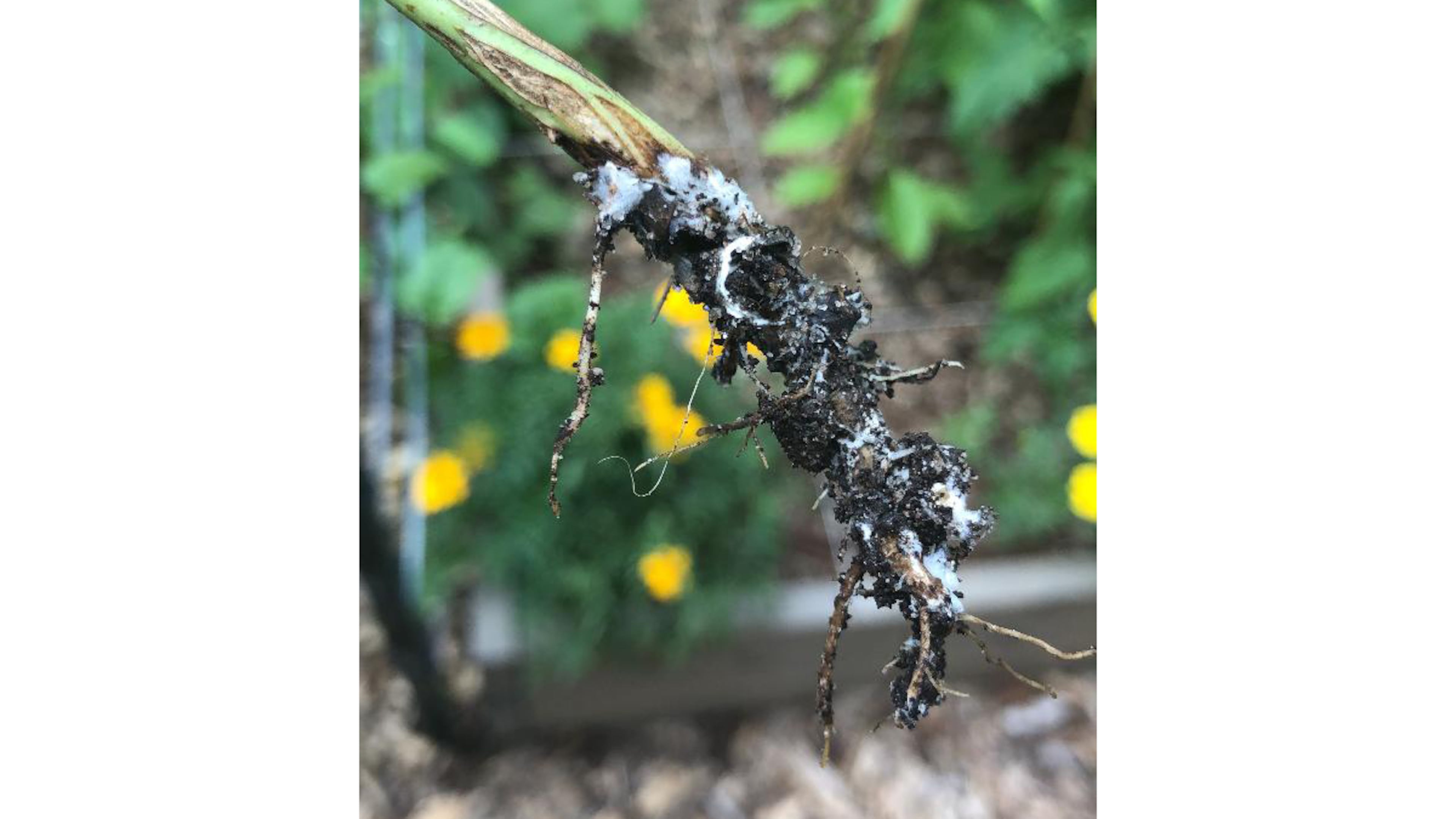Southern blight: Almost impossible to control in a home garden

Q: Can you please help me identify what’s killing my vegetable plants? They were started indoors, given excellent growing conditions in raised beds with compost, and irrigated with drip irrigation. The condition starts with the plant wilting overnight, and when I pull it up, I find white stuff on the roots and on the base of the stem. Samina Shariff, email
A: Your plants have Southern blight. It is almost impossible to control in a home garden. The disease is also called southern wilt, southern stem rot and southern root rot. It results from infection by a soilborne fungus: Sclerotium rolfsii. The fungus survives in the soil as tiny, tan to brown, round balls of sclerotia. The fungus produces lots of stringy white hyphae or mycelia around infected parts and in and on the soil. Commercial growers fumigate the soil to control the disease. Home gardeners have few options other than providing perfect growing conditions. One strategy is to invert the soil in your beds each year. This buries infected plant debris and sclerotia. Modify planting dates to avoid conditions that favor disease development; wait until May to plant in a shaded bed. Maintain adequate soil pH for optimum plant growth. Lower soil pH encourages disease.
Q: I planted two different tomato plants in April. One was planted next to a termite baiting system that was installed five years ago. A week ago, it started wilting. Could this be a result of planting it next to the termite canister? Is there a risk of contamination? Barbara Christie, Atlanta
A: It seems to me that you have two questions: Will the termite bait station contaminate the tomato fruit, and will the bait station affect the growth of your tomato plant? I feel confident in saying that the contents of the station, usually untreated wood, cardboard or a chemical bait that has been studied for years to make sure it poses no harm to humans or pets, would not contain anything harmful to you via the fruit. Likewise, I very much doubt there is anything left after five years that would affect plant growth.
Q: Are there any tree ferns that can be grown outdoors in the Atlanta area? Ken Buckner, email
A: No. Australian tree fern, Cyathea cooperi, is the hardiest of the bunch, but I doubt it could tolerate the cold temperatures north of Macon. Plant one and let me know what happens.
Email Walter at georgiagardener@yahoo.com. Listen to his occasional garden comments on “Green and Growing with Ashley Frasca” on Saturday mornings on 95.5 WSB. Visit his website, www.walterreeves.com, or join his Facebook page at bit.ly/georgiagardener for his latest tips.

